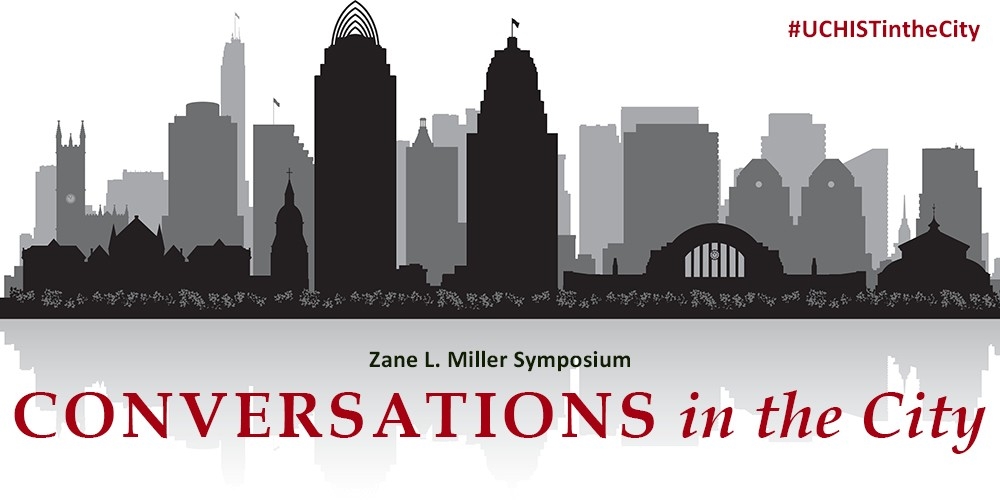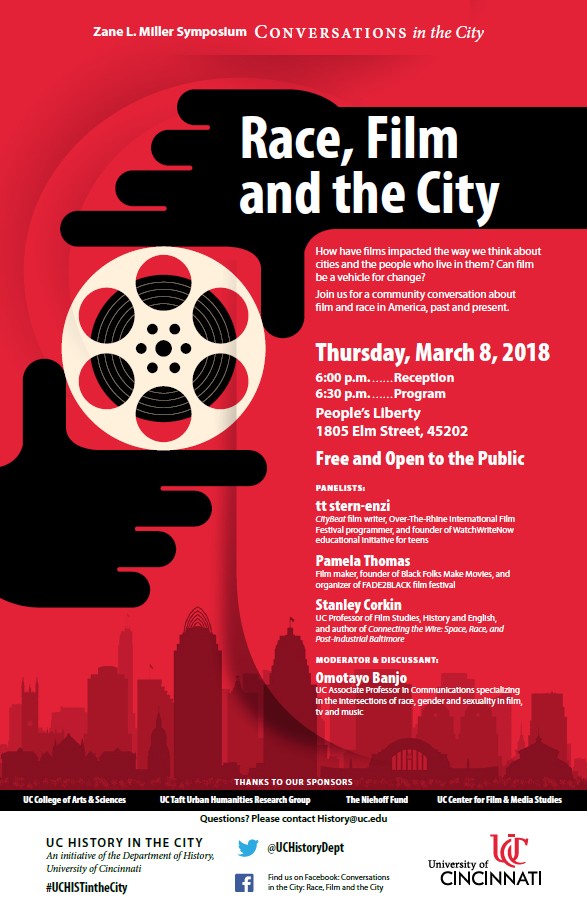Beyond Hollywood: UC symposium explores race, film and the city
The March 8 Zane L. Miller Conversations in the City Symposium hosted by UC’s Department of History explores how films have shaped the way we think about cities — and the people who live in them.
A good movie does more than entertain or drive ticket sales. Film, perhaps beyond that of any other medium, holds the power to change hearts and minds — and even, at times, society.
Looking beyond the glitz and glamour of Hollywood at film as a cultural agent in shaping larger policies, politics and social perceptions is the goal of this year’s Zane L. Miller Conversations in the City Symposium, “Race, Film and the City,” presented by the University of Cincinnati’s Department of History.
The free event kicks off with a 6 p.m. reception on Thursday, March 8, at People’s Liberty, 1805 Elm St., Over-the-Rhine. A panel discussion follows at 6:30 p.m.
Among the discussion topics: How have films impacted the way we think about cities and the people who live in them? What difference does that make? Can film be a vehicle for change?
Panelists include urban film expert Stanley Corkin, the Charles Phelps Taft Professor of English and History and Niehoff Professor of Film and Media Studies at UC; TT Stern-Enzi, an award-winning freelance writer and contributing film editor at Cincinnati CityBeat and Dayton City Paper; and Pamela Thomas, executive director and founder of Black Folks Make Movies and founder of Cincinnati black American cinema film festival FADE2BLACK.
Omotayo Banjo, an associate professor in communications who specializes in the intersections of race, gender and sexuality in film, TV and music, will moderate.
“We’re hoping discussions will explore how film has shaped ideas about race in America, both historically and in the present day,” said Tracy Teslow, an associate professor of history and event organizer who teaches and writes about the history of race in the U.S.
“We want to talk about how cultural products such as films have a profound impact on how we think about cities and the people who live there, especially in terms of racial ideologies and hierarchies, shaping our politics, policies and social interactions,” said Teslow.
Now in its second year, the symposium honors the legacy of the late UC professor and renowned urban historian Zane Miller whose career at UC spanned 35 years.
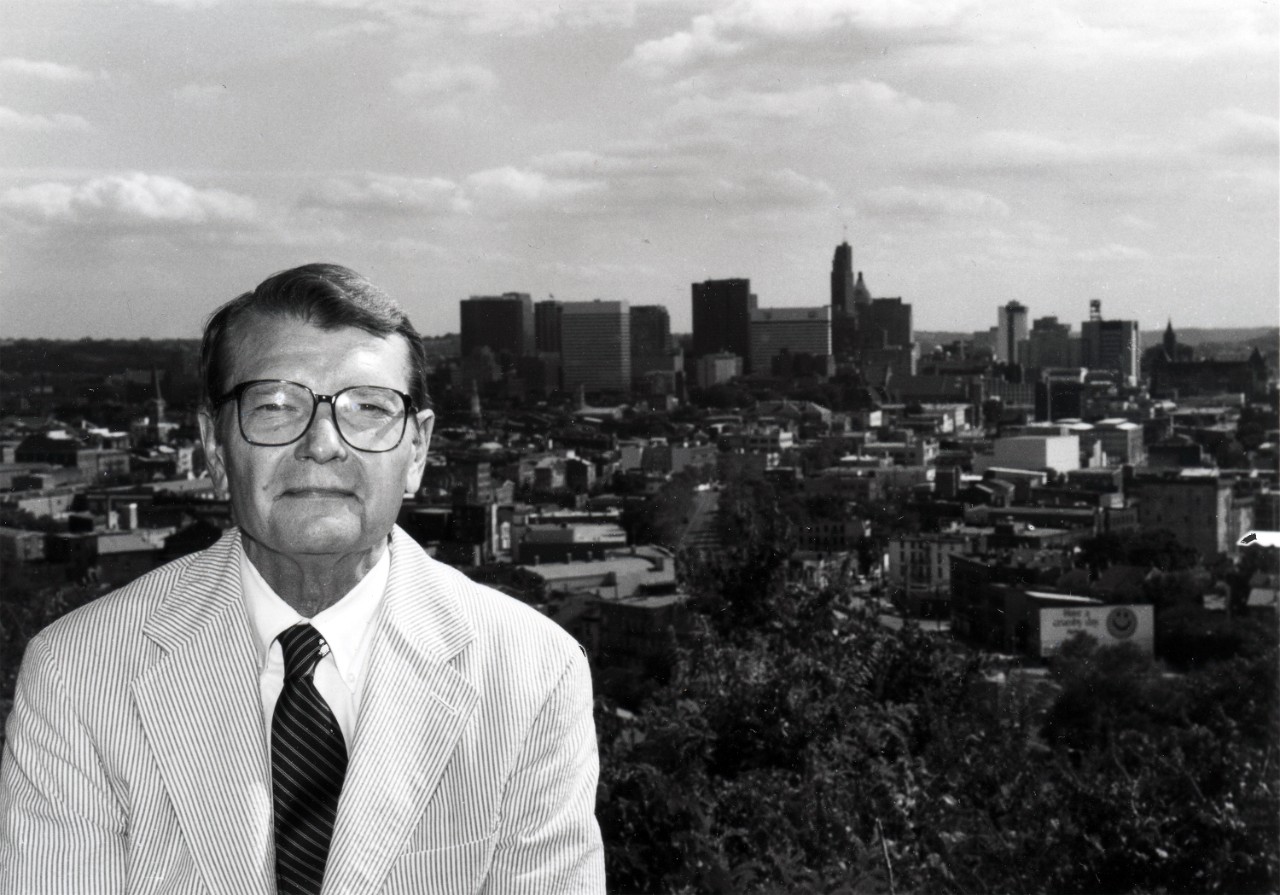
Zane L. Miller / UC Archives
Miller, who died in 2016, was a pioneer in the study and teaching of the history of American cities. His 1968 book, “Boss Cox’s Cincinnati: Urban Politics in the Progressive Era,” is hailed as a classic in the field of urban studies. The prolific historian also published numerous articles, co-edited three history series and was awarded several grants from the National Endowment for the Humanities.
Miller’s passion for urban history extended well beyond the classroom. He served as co-director of the UC Center for Neighborhood and Community Studies and on the city of Cincinnati’s Historic Conservation Board and Historic Preservation Advisory, and later co-founded and served as president of the Urban History Association.
That emphasis on civic engagement is a legacy that continues to be carried on by many of Miller’s students, including several UC professors who studied under him.
“As a historian in and of the city, Zane Miller explored, wrote and taught about past histories and perceptions of race in the city and retained a cautious optimism about ‘the human ability to reject the cultural legacy of the past and to think and act in new ways’ through ‘civic engagement,’” said Judy Spraul-Schmidt, an adjunct associate professor of history, who studied with Miller, referring back to Miller’s own writing.
The Conversations in the City event is part of the UC History in the City initiative, which publicizes and energizes the long-standing outreach by UC history department faculty members and graduate students to bring urban history to the general public and history to life for 21st century city residents.
For event information, contact history@uc.edu or follow #UCHistintheCity on Twitter or Facebook.
IF YOU GO
- The Zane L. Miller Symposium, “Race, Film and the City” kicks off with a 6 p.m. reception on Thursday, March 8, at People’s Liberty, 1805 Elm St., Over-the-Rhine. A panel discussion follows at 6:30 p.m. The event is free and open to the community.
- Attendees are also invited to see a screening of Spike Lee’s 2000 film “Bamboozled,” Tuesday, March 6, at Mini Microcinema, 1329 Main St., Over-the-Rhine. Doors open at 7 p.m.; the screening starts at 7:30 p.m. Admission is free, with a $5 suggested donation.
ABOUT THE PANELISTS
Stanley Corkin is the Charles Phelps Taft Professor of English and History and Niehoff Professor of Film and Media Studies at the University of Cincinnati. As one of the foremost scholars in the field of urban film studies, Corkin has helped pioneer important interdisciplinary approaches to the study of American history and culture. He is the author of four books, including “Connecting the Wire: Space, Race, and Post-Industrial Baltimore” (U. of Texas, 2017), “Starring New York: Filming the Grime and Glamour of the Long 1970s” (Oxford, 2011), “Cowboys as Cold Warriors: The Western and U.S. History” (Temple, 2004), and “Realism and the Birth of the Modern United States: Cinema, Literature, and Culture” (Georgia, 1996). His work has also appeared in several leading academic journals.
TT Stern-Enzi is a freelance writer and contributing film editor with Cincinnati CityBeat, Dayton City Paper and other outlets. His film writing earned an Ohio Arts Council Individual Excellence Award for Criticism. He regularly attends the Toronto International Film Festival and has covered festivals in Cleveland, Traverse City and Munich. He also has experience curating regional film events at the Mini Microcinema and other venues, serving on film juries for the 48 Hour Film Festival and developing film curriculum for his WatchWriteNow educational initiative, which focuses on film as a tool for creative and critical engagement with middle and high school students across the Greater Cincinnati region. Stern-Enzi recently joined the Over-the-Rhine International Film Festival as a programmer.
Pamela Thomas is the executive director and founder of Black Folks Make Movies, which promotes empowerment and education through Black American film, and is founder of Cincinnati film festival FADE2BLACK, which celebrates black American cinema. She produced the award-winning documentary, “Midnight Ramble: Oscar Micheaux and the Story of Race Movies” for the PBS documentary series, “The American Experience.” Thomas has lectured widely on the significance and impact of race movies, including engagements at Harvard and Howard universities, the Smithsonian National Museum of American History and the Hong Kong Film Center in China. She is the recipient of several awards, including a Ciné Golden Eagle, National Black Programming Consortium Community Choice Awards for Best Documentary and Best Producer and a Silver Hugo.
Omotayo Banjo, an associate professor in communications at the University of Cincinnati, specializes in the intersections of race, gender and sexuality in film, television and music. Her scholarship focuses on representation and audience responses to racial and cultural media. Her work has appeared in scholarly journals including Journal of Broadcasting & Electronic Media, Communication Theory, Journalism & Mass Communication Quarterly, Journal of Media and Religion, and Race and Social Problems. Banjo is also an affiliate faculty of Africana Studies, Women, Gender, & Sexuality Studies and Journalism.
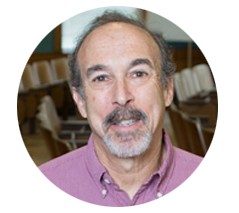
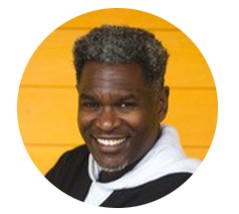
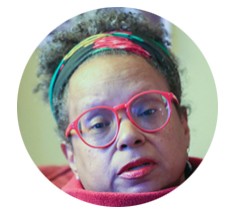

Become a Bearcat
Learn more about how UC's undergraduate and graduate programs in the Department of History help students learn the past, reassess the present and develop skills for the future, or explore other degrees and programs. Tour the campus and apply today.

